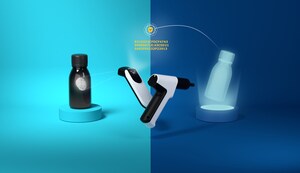Merck Launches New Gene Editing Technology to Engineer Virus Resistant CHO Cell Lines
- Reduces minute virus of mice contamination risk
- Enhances viral safety while maintaining cell line productivity, protein quality
DARMSTADT, Germany, Sept. 8, 2016 /PRNewswire/ -- Merck, a leading science and technology company, today launched a first-of-its-kind gene editing technology to modify CHO cell lines to be resistant to minute virus of mice (MVM), a common contamination threat that remains despite the shift to chemically defined, animal component-free manufacturing processes. CHO cells are commonly used in the manufacture of biologics.
Merck's new Centinel™ technology targets genes which play a role in MVM susceptibility. Viral contaminations like MVM can have major consequences for biopharmaceutical manufacturers, costing hundreds of millions of dollars, according to industry reports. The greatest impact of such contamination is on patients, as access to therapies can be put in jeopardy. Centinel™ technology provides manufacturers with an additional path for mitigating the risk of MVM contamination, while maintaining an equivalent level of protein quality and cell line productivity.
"The Centinel™ program is just one example of how we are combining years of expertise and credibility in process development, biologics manufacturing and gene editing tools to increase safety for our customers and their patients," said Udit Batra, member of the Merck Executive Board and CEO, Life Science. "We are also leveraging this unique combination of experience and technologies to address some of the industry's most complex challenges and exciting applications, including cell therapy."
Under the Centinel™ program, Merck can modify customers' CHO cell lines to provide viral resistance to MVM. A patent application has been submitted for the technology used in the gene editing approach to viral resistance.
The company's BioReliance® testing services can validate MVM resistance and demonstrate the virus is not propagated in the cell line. Alternatively, customers can purchase the zinc finger nuclease pairs to engineer cell lines directly.
Merck's new Centinel™ technology builds on the company's expertise in gene editing and biomanufacturing processes, as well as its in-depth understanding of the regulatory environment. In addition to enhancing the safety of biomanufacturing, Merck is also applying this expertise and approach to develop other technologies and services, including those supporting the cell therapy industry.
All Merck news releases are distributed by email at the same time they become available on the Merck website. Please go to www.merckgroup.com/subscribe to register online, change your selection or discontinue this service.
About Merck
Merck is a leading science and technology company in healthcare, life science and performance materials. Around 50,000 employees work to further develop technologies that improve and enhance life – from biopharmaceutical therapies to treat cancer or multiple sclerosis, cutting-edge systems for scientific research and production, to liquid crystals for smartphones and LCD televisions. In 2015, Merck generated sales of € 12.85 billion in 66 countries.
Founded in 1668, Merck is the world's oldest pharmaceutical and chemical company. The founding family remains the majority owner of the publicly listed corporate group. The company holds the global rights to the Merck name and brand. The only exceptions are the United States and Canada, where the company operates as EMD Serono, MilliporeSigma and EMD Performance Materials.





Share this article